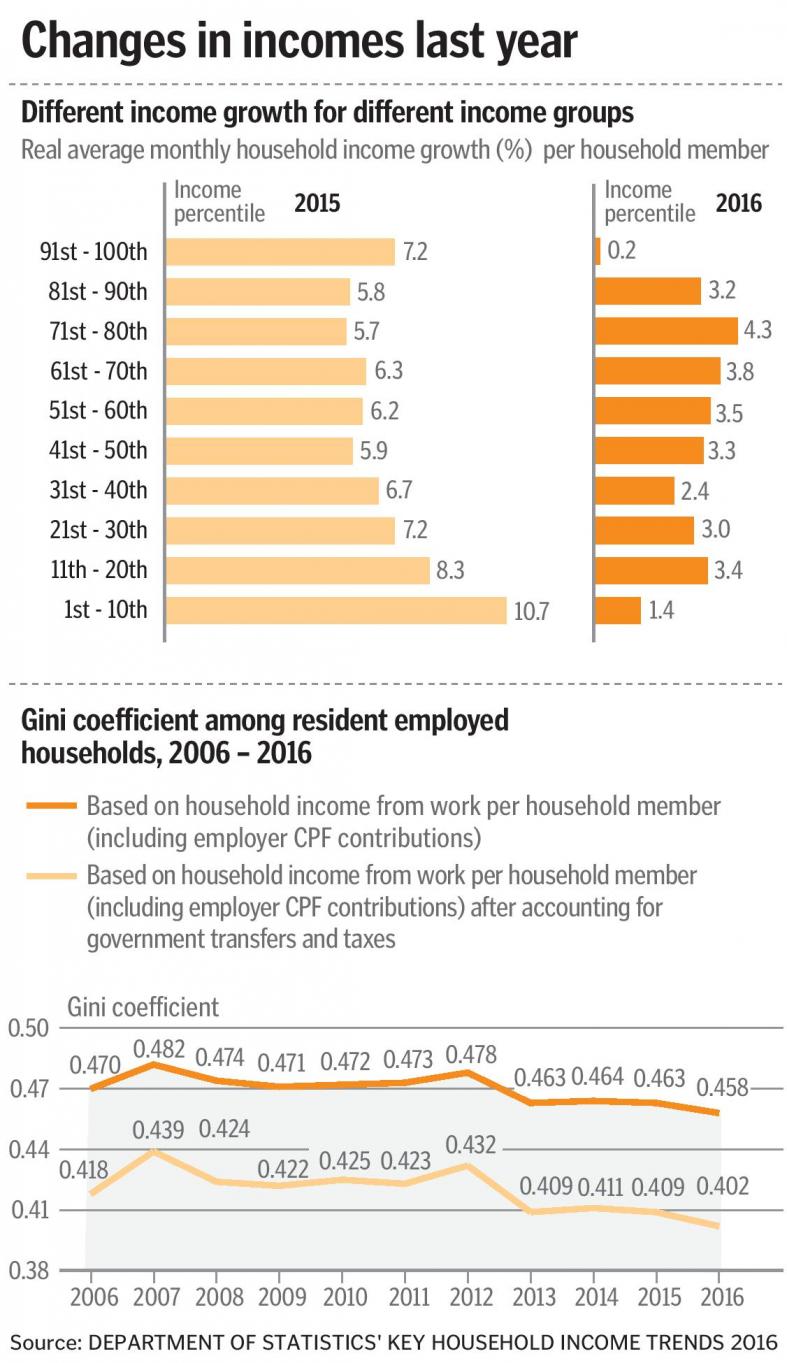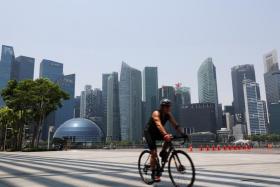Income inequality lowest in 10 years
Key report for last year shows income inequality in Singapore is lowest in a decade
The median monthly income for employed households grew last year, but at a slower rate than in 2015, statistics released by the Government yesterday showed.
The median monthly income grew from $8,666 in 2015 to $8,846 last year - a 2.1 per cent rise in nominal terms, or a 2.6 cent rise in real terms once inflation is taken into account, said the Department of Statistics in its annual Key Household Income Trends report.
This growth, however, was lower than the 4.5 per cent nominal and 4.9 per cent real growth recorded in 2015.
Economists told The New Paper that the slower wage growth was in line with Singapore's slower economic outlook.
Singapore's GDP growth for 2016 is estimated at 1.8 per cent, reported The Business Times earlier this month, which is among its weakest levels.
Mr Vishnu Varathan, a senior economist at Mizuho Bank in Singapore, told TNP that the moderated economic growth could have trickled down and led to slower wage growth.
"We continue to have weak employment creation and rate of creating new jobs which impact wage growth as there aren't as many people moving around jobs and the demand is weak.
Households across all income groups earned more per household member last year, but the growth was at a slower rate than in 2015, said the report."With business prospects bottoming last year and continuing to be uncertain in this situation, employers have a tendency to keep the costs low and that includes wages," he said.

Last year, the average household income from work per household member in real terms grew by between 0.2 per cent and 4.3 per cent, depending on the income group.
This was lower than the range of 5.7 per cent to 10.7 per cent in 2015, and consistent with the slower wage growth last year that the Manpower Ministry recently announced.
Mr Varathan predicted that wage growth will stay the same over the next few years.
CIMB Private bank economist Song Seng Wun said wage growth would increase only if global demand picks up.
"In this climate, if there's any positive real income growth, we should just take it," he said.
One reason for cheer was that Singapore's income inequality last year was the lowest in a decade.
The Gini coefficient, which measures income inequality, was recorded at 0.458 - out of 1 - last year, down from 0.463 in 2015. This was Singapore's lowest score in 10 years.
Mr Song said this was consistent with the Government's efforts and policies to improve the wages of the lower income group.
Mr Varathan added: "A wider income inequality may see the ultra rich spending their money abroad. But if income is more evenly distributed, there's a greater chance more of the spending is done here and that money is recycled within and grows our economy."
Get The New Paper on your phone with the free TNP app. Download from the Apple App Store or Google Play Store now



